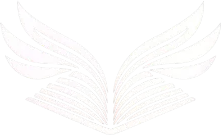
FAQ
This section clarifies the foundation’s purpose, addresses common misconceptions, and provides direct answers to frequently asked questions
Are you saying that Irish Travellers are the only 'real' Irish?
No. This is a fundamental misinterpretation of the work. The foundation’s position is that Irish Travellers retain a unique and direct continuity with a pre-colonial Gaelic way of life that was systematically suppressed in the majority population. The goal is not to invalidate any identity, but to reconnect all Irish people to this shared, deeper heritage. The work is about completing the story of Ireland, not creating new divisions.
Isn't this work just about blaming the English or the Settled Irish?
No. The focus is never on assigning blame to individuals or entire populations. The focus is on understanding and critiquing the system of colonialism and its enduring psychological and social impact on everyone involved, including those who were colonisers and those who were colonised. The objective is healing and reconciliation, which cannot begin without a truthful accounting of the historical systems that created the wounds.
What do you mean by 'objective truth'?
Objective truth refers to a truth that is grounded in verifiable, cross-disciplinary evidence. It is established by triangulating findings from different fields—such as genetics, archaeology, historical records, and linguistics—to build a robust and fact-based conclusion that transcends personal belief, political ideology, or community tradition alone. It is the foundation’s primary tool for challenging myths and misinformation.
Why do you use the term 'Indigenous' for Irish Travellers?
The term ‘Indigenous’ is used because Irish Travellers meet the internationally recognised criteria: they are descendants of the original inhabitants of the land prior to colonisation; they have a distinct culture, language, and social system; and they have experienced dispossession, marginalisation, and a continuing struggle for the recognition of their collective rights. Their genetic and cultural continuity with pre-colonial Gaelic society confirms their status as an Indigenous people of Ireland.
How is your approach different from other Traveller advocacy groups?
Many organisations do vital work providing services and advocating for rights within the existing system. TraVision Foundation ‘s approach is different in that it focuses on decolonisation as the root solution. It critiques the assimilationist premises that often underlie conventional approaches and seeks to fundamentally reframe the public and institutional understanding of who Irish Travellers are by providing the historical and scientific evidence of their Indigenous origins. The work is about changing the paradigm, not just working within it.

